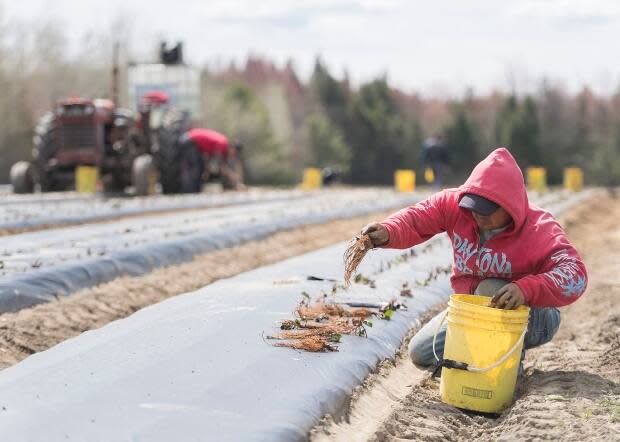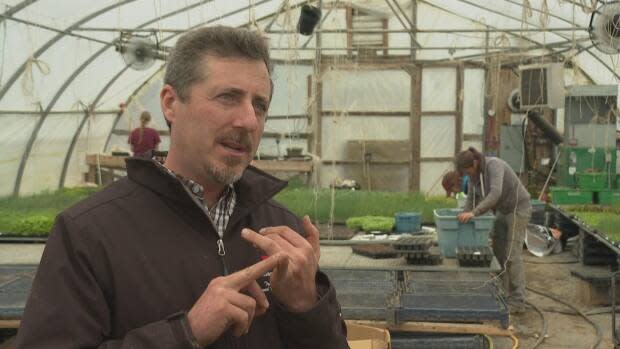N.B. farmer says isolation rules for temporary foreign workers 'a new hurdle'

New rules governing how temporary foreign workers can isolate upon entering New Brunswick are sowing fears about significantly higher expenses for farmers this year.
Spring is around the corner and New Brunswick farmers are preparing to bring in another crop of foreign workers, mostly from Mexico and the Caribbean.
However, unlike last year when workers were allowed to self-isolate in shared dwellings on their employer's property, the provincial government has said they'll now need to isolate for 14 days in accommodations that don't include shared amenities.
According to a Department of Post-Secondary Education, Training and Labour memo shared with CBC News, that means temporary foreign workers won't be able to stay in accommodations that have shared sleeping quarters, shared bathrooms and showers, shared kitchen facilities or shared laundry facilities.
The memo suggests employers rent hotel rooms for their workers for the 14-day period.
"These changes are public health measures to minimize the risks related to the highly transmissible variants of the COVID-19 virus," the memo states.
For Tim Livingstone, co-owner of Strawberry Hill Farm near Woodstock, N.B., the new rules put an added burden he's not sure he can handle.

Last year, three workers he brought in were able to self-isolate in a home where they shared common amenities.
While it only had one kitchen, it did have a bedroom with its own bathroom in the event one of them became sick and needed to be separated from the others.
"Now, with these new rules, the house can only have one person because there's only one kitchen, even though there's, you know, multiple bedrooms and you even have two sets of laundry," Livingstone told CBC's Shift New Brunswick.
"It means that we're going to most likely ... be required to put them in a motel somewhere, where they can be completely isolated for those 14 days."
Livingstone said he estimates that if he had to foot the bill to put his workers in a motel, he'd possibly end up spending up to $5,000.
For other farmers who expect to bring in more workers, that figure could be significantly higher, he said.
On top of that, he said some farmers already went through the costly process last year of setting up accommodations for workers to isolate in shared dwellings on their property, with one farmer he knows spending $170,000 to do so.
"So it's bringing a new expense, a new hurdle, right at a time when, you know, we're getting into the season, we're buying inputs, we're trying to get things lined up and all of a sudden now what we were counting on no longer fits the rules."
At Friday's COVID-19 briefing, Health Minister Dorothy Shephard said she had "no clear answer" to the concerns raised.
After a 2020 plagued by pandemic and drought, the province's new rules will only make life harder for farmers, and potentially consumers, said Lisa Ashworth, president of the Agricultural Alliance of New Brunswick.

With farmers still feeling the economic effects of a less-than-stellar year, some won't be able to plant this year if the new rules remain in place, she said.
And while New Brunswick has typically relied on importing its produce from other parts of the world, strains on production elsewhere could even jeopardize that in the future, she said.
"We don't want to go into another season handicapping our own province's food security if we don't have to," she said.
"It's a delicate balance and that is the challenge. We want to have rigorous health and safety protocols, but they have to be realistic and they have to be economically viable at the end of the day or people will simply not plant crops."

 Yahoo Finance
Yahoo Finance 